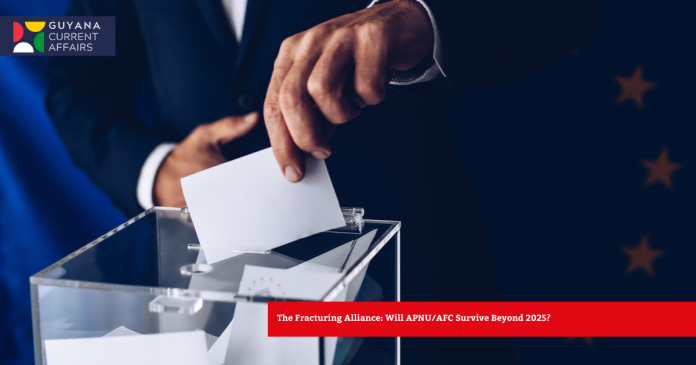The alliance between A Partnership for National Unity (APNU) and the Alliance For Change (AFC) is facing significant challenges as Guyana approaches the 2025 general elections. The partnership, which was instrumental in securing a historic victory in the 2015 elections, is now on shaky ground due to internal disputes and divergent priorities.
Leadership Disputes
At the heart of the coalition’s troubles lies a contentious battle for leadership. APNU’s leader, Aubrey Norton, has consistently asserted that he should be the presidential candidate, citing the PNC’s dominant position within the coalition. However, AFC leader Nigel Hughes has rejected this notion, emphasizing the need for a transparent and scientific process to select a candidate. This disagreement highlights the deep-seated mistrust and differing visions within the alliance.
Trust Issues and Conditional Engagement
The AFC has expressed deep-seated mistrust, with Hughes describing the recently signed Memorandum of Understanding (MoU) as being “on life support.” Trust and confidentiality are key principles for the AFC, and breaches have already complicated the negotiations. The AFC remains committed to contesting the elections independently if the terms of any potential alliance are not in its best interest.
Divergent Priorities
While APNU appears focused on maintaining its dominant position, the AFC is pushing for a more equitable partnership based on scientific means of leadership selection. This divergence in priorities threatens the coalition’s unity and ability to present a cohesive front against the ruling PPP/C government.
Future Prospects
As the deadline approaches for finalizing the coalition, APNU and AFC face significant challenges in overcoming their internal divisions. The leadership struggle, coupled with trust issues and divergent priorities, undermines their efforts to present a credible alternative to the PPP/C government. Unless these power struggles are resolved and a truly unified front is presented, the coalition’s chances in the upcoming elections may be severely compromised.
The future of the APNU/AFC alliance beyond 2025 remains uncertain. The outcome of the ongoing discussions will determine whether they will unite once again or chart separate paths. If the alliance fails to coalesce, it could mark a significant shift in Guyana’s opposition politics, potentially leading to a reconfiguration of alliances and strategies in the years to come.


